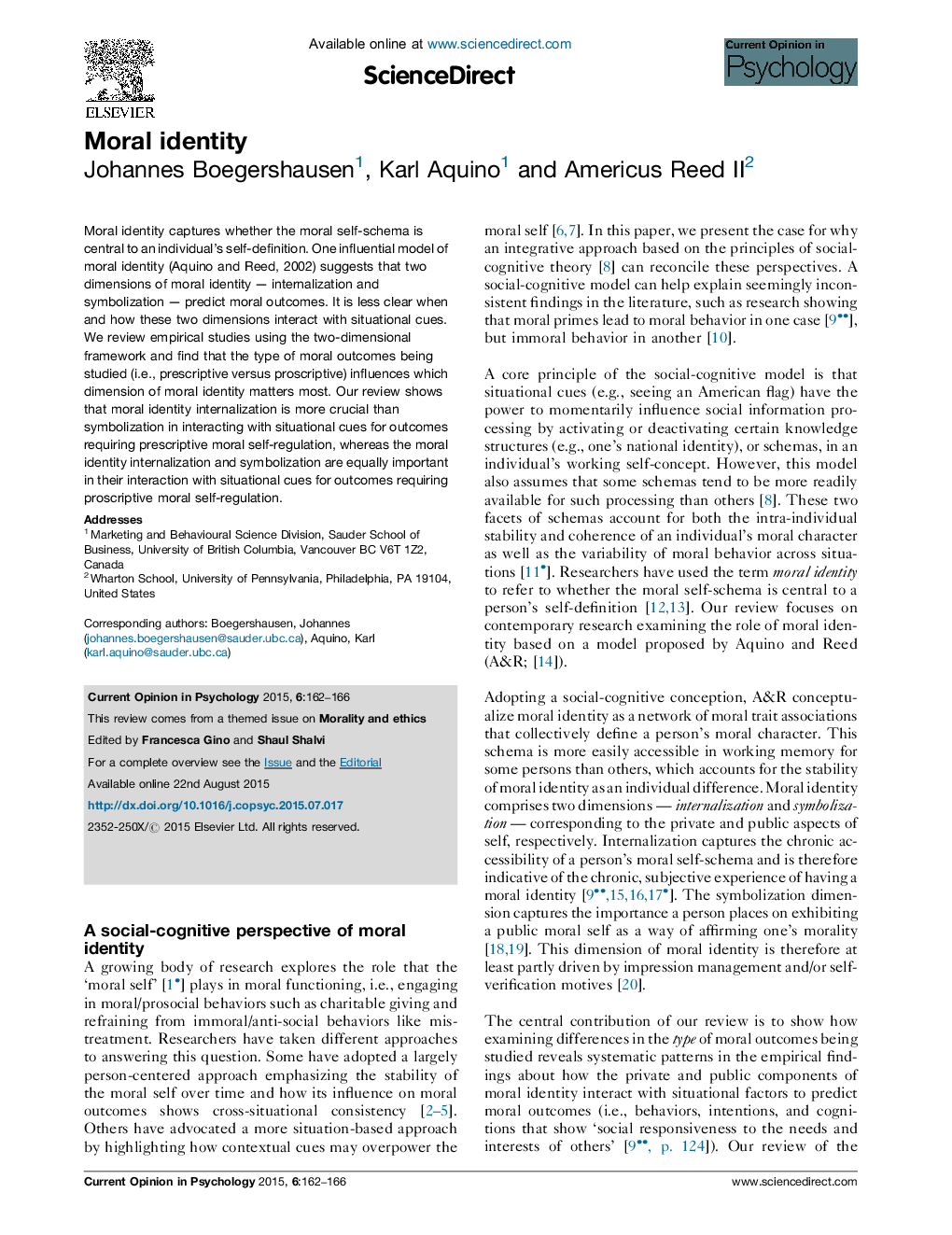| Article ID | Journal | Published Year | Pages | File Type |
|---|---|---|---|---|
| 879446 | Current Opinion in Psychology | 2015 | 5 Pages |
•Moral identity influences whether and how situational cues sway moral behavior.•Moral identity internalization is more important than symbolization in the regulation of prescriptive moral outcomes.•Internalization and symbolization are equally important for proscriptive moral outcomes.
Moral identity captures whether the moral self-schema is central to an individual's self-definition. One influential model of moral identity (Aquino and Reed, 2002) suggests that two dimensions of moral identity — internalization and symbolization — predict moral outcomes. It is less clear when and how these two dimensions interact with situational cues. We review empirical studies using the two-dimensional framework and find that the type of moral outcomes being studied (i.e., prescriptive versus proscriptive) influences which dimension of moral identity matters most. Our review shows that moral identity internalization is more crucial than symbolization in interacting with situational cues for outcomes requiring prescriptive moral self-regulation, whereas the moral identity internalization and symbolization are equally important in their interaction with situational cues for outcomes requiring proscriptive moral self-regulation.
